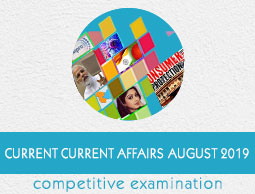
- Appointments
- Awards
- Bills & Acts
- Books & Authors
- Committees
- Deaths
- Defence
- Economic
- Environment
- Banking and Finance
- Important Days
- International
- Miscellaneous
- National
- Persons in News
- Places in News
- Regional
- Reports
- Resignations & Retirements
- Science & Technology
- Sports
- August 2019 - Exams Resources
- Current Affairs - Quiz
- Current Affairs - Test
- Current Affairs - PDF
Current Affairs August 2019 - International
1 - US withdrew from Intermediate-Range Nuclear Forces Treaty with Russia

The United States and Russia have withdrawn from the Intermediate-range Nuclear Forces treaty signed between the two nations in 1987. The treaty was signed by then US President Ronald Reagan and Soviet leader Mikhail Gorbachev.
The INF Treaty banned all of the two nations' land-based ballistic missiles, cruise missiles, and missile launchers with ranges of 5001,000 km (short medium-range) and 1,0005,500 km (intermediate-range).
2 - South Asia Air Quality Tech Camp organized in Kathmandu
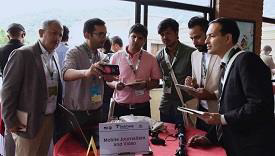
The U.S. Embassy in partnership with Kathmandu Living Lab organized a South Asia Air Quality Tech Camp in Nepal, Kathmandu, so as to address air pollution problems. The two day camp was attended by participants from seven South Asian countries - Bangladesh, Bhutan, India, Maldives, Nepal, Pakistan and Sri Lanka.
TechCamp participants addressed air quality issues using technology aiming at engaging society and governments to take action and improve air quality in South Asia. Various workshops were organized to build technical capacity among civil society.
3 - 52nd ASEAN summit held in Bangkok
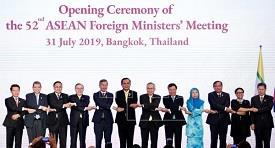
The 52nd ASEAN Foreign Ministers Meeting was held in Bangkok, Thailand. The theme of the meeting was Advancing Partnership for Sustainability which gives high importance to promoting sustainability in all dimensions and efforts to achieve a people-centred ASEAN Community. The The meeting was attended by delegates from more than 30 countries.
The key points discussed in the meeting were challenges due to the Fourth Industrial Revolution, expand trade amid rising global challenges, advance ASEAN in the areas of digital economy, infrastructure development, increase the use of innovation, enhance regional economic integration, and strengthen cyber security.
4 - Netherlands bans face-covering clothing
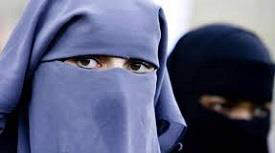
The Netherlands banned face-covering clothing, such as a burqa or niqab, in public buildings and on transport. The Netherlands is the latest European country to introduce such a ban, following the likes of France, Germany, Belgium, Austria and Denmark.
The legislation also applies to other face coverings such as full-face helmets, balaclavas or ski mask. France was the first European nation to ban the public use of veils, both face-covering niqabs and full-body burqas.
5 - 10th Mekong Ganga Cooperation Ministerial Meeting held in Bangkok
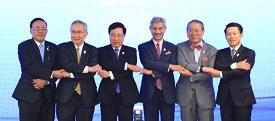
The 10th Mekong Ganga Cooperation (MGC) Ministerial Meeting was held in Bangkok, Thailand. External Affairs Minister S Jaishankar represented India.
The Ministers adopted the new MGC Plan of Action 2019-2022 that envisages project-based cooperation in the seven areas of MGC cooperation, namely tourism and culture, education, public health and traditional medicine, agriculture and allied sectors, transport and communication, MSMEs as well as three new areas of cooperation, i.e. water resources management, science and technology, skill development and capacity building.
6 - United States designated China a "currency manipulator"
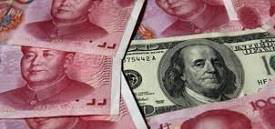
The United States designated China a "currency manipulator" on the basis of Chinas intent on continuing to receive hundreds of billions of dollars from the US with unfair trade practices and currency manipulation. China allowed the Yuan to depreciate below the symbolic level of 7 Yuan to the U.S. dollar. China is trying to game the trade system by weakening its currency to lift exports.
China is found suspicious by U.S. treasury dept for facilitating an undervalued currency through large-scale intervention in the foreign exchange market.
7 - India contributed USD 5 million to UN Palestine refugee agency
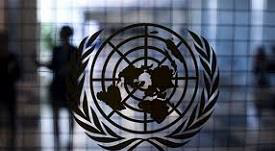
India contributed USD 5 million to the UN Palestine refugee agency. India increased its annual financial assistance to the United Nations Relief and Works Agency (UNRWA) by four fold, from USD 1.25 million to USD 5 million.
The UNRWA has been providing health, education, relief and social services, as well as emergency humanitarian assistance, across its five areas of operations in Jordan, Lebanon, Syria, West Bank, and the Gaza Strip since 1950.
8 - Bangladesh signed uranium supply deal with Russia
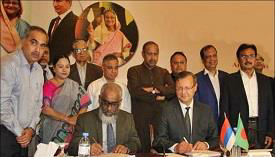
Bangladesh signed a deal with Russia for the supply of uranium for its 2,400 MW Rooppur Nuclear Power Plant (RNPP). The deal was signed between the Bangladesh Atomic Energy Commission and Russian Nuclear Fuel Supply Company (TVEL).
As a part of the deal, Russia will supply the nuclear fuel needed for the plant during its entire life cycle. The two countries have also signed 'spent fuel sent back agreement in 2017 for management of the nuclear waste of RNPP.
9 - Hong Kong political crisis in brief
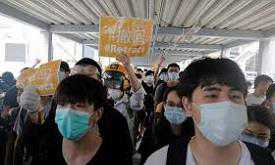
Pro-democracy protesters in Hong Kong have been staging protest after it sparked late this spring. The protesters have been protesting against the governments attempt to adopt a bill that would have enabled the Peoples Republic of China (PRC) to request extradition of suspected criminals from Hong Kong.
The protests included a one-day general strike and the initial occupation of Hong Kong International Airport. This is the biggest challenge to Chinese rule on the Hong Kong since its handover from Britain in 1997.
10 - Over 5 lakh Rohingya refugees get identity cards in Bangladesh

More than 5 lakh Rohingya refugees living in Bangladesh have been issued identity documents by the UNHCR. Bangladesh claims to have 11 lakh Rohingya refugees in the country.
UNHCR uses a Biometric Identity Management System (BIMS) that captures unique data, including fingerprints and iris scans. At the end of the process, refugees receive an ID card that includes a photo and key information, such as name, date of birth and place of birth. The card also indicates Myanmar as the country of origin.
11 - Iran unveiled three new precision-guided missiles
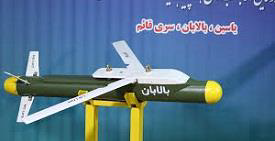
Iran unveiled three precision-guided air-to-air missiles, named "Yasin", "Balaban" and a new series of the "Ghaem". The missiles are jointly developed by the defence ministry of Iran and Sa Iran, also known as Iran Electronics Industries.
The Yasin is a smart, guided missile with folding wings that can be fired from a range of 50km of its target from manned or unmanned aircraft. The Balaban is guided by GPS and sensors, equipped with folding wings and could be mounted under aircraft, while the Ghaem was a heat-seeking missile that could hit within 50 centimetres of a target.
12 - Papua New Guinea has highest number of living indigenous languages in world
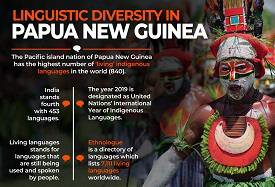
According to a report of the United Nations, Papua New Guinea has the highest number of living indigenous languages in the world with 840. India is 4th in the list with 453 languages.
Among regions, Asia and Africa account for the highest number of indigenous languages (over 70% of the total). Ethnologue, a directory of languages, lists 7,111 living languages worldwide (languages that are still being used and spoken by people).
13 - Alejandro Giammattei selected as Guatemala's new president
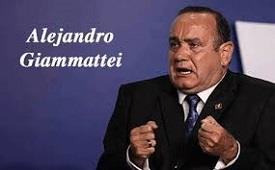
Alejandro Giammattei was elected as new president of Guatemala defeating former first lady Sandra Torres by 60% of the votes. He replaced President Jimmy Morales. He has promised to combat corruption and bring an economic revival.
Giammattei had previously participated in Guatemala's presidential elections in 2007, 2011 and 2015. He has been recognized as a consultant to several companies and private services since 2000 and was appointed director of the Guatemalan Penitentiary System in 2006.
14 - India contributed $1 million to UN fund
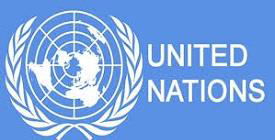
India contributed one million US Dollars to the United Nations Special Purpose Trust Fund for the Resident Coordinator System. Special Purpose Trust Fund is a specific fund housed within the UN Secretariat, established to receive and manage all contributions and financial transactions of the new Resident Coordinator system in a transparent way.
United Nations Special Purpose Trust Fund funding sources include voluntary contributions from the Member States, the doubling of cost-sharing amounts from the UN entities and 1% levy applied to contributions for UN development related activities.
15 - US tests medium-range cruise missile after exit from INF treaty
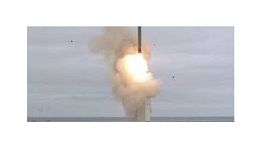
The USA has tested a conventionally configured ground-launched cruise missile with a range of more than 500 km (310 miles), the first such test since the US pulled out of the Intermediate-range Nuclear Forces Treaty (INF).
The Intermediate-Range Nuclear Forces treaty of 1987 stipulated that the U.S. and Russia would never deploy ground-based ballistic and cruise missiles with a range of 500 to 5,500 kilometers -- either nuclear or conventional. USA formally withdrew from the pact on August 2.
16 - PM Modi held meeting with Crown Prince of Abu Dhabi during UAE visit
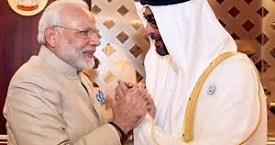
Prime Minister Narendra Modi discussed the full spectrum of the strong India-UAE partnership with the Crown Prince of Abu Dhabi, Sheikh Mohammed bin Zayed Al Nahyan. With an annual bilateral trade of about $60 billion, UAE is India's third-largest trade partner and fourth-largest exporter of crude oil for India.
To mark the 150th birth anniversary of Mahatma Gandhi, a commemorative stamp was jointly released. PM also launched the RuPay card in UAE. UAE became the first country in the Middle East to initiate the Indian indigenous system of electronic payment.
17 - Memorandum of Understanding (MoUs) signed between India and Bahrain
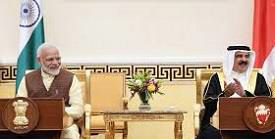
India and Bahrain signed the following MoUs during PM Modi's visit to the Gulf nation.
Statement of Intent on collaboration between ISRO and National Space Science Agency in the area of Space Technology
Statement of Intent on collaboration of the Kingdom of Bahrain with International Solar Alliance (ISA)
Cultural Exchange Programme between India and Bahrain
MoU on usage of RuPay card
18 - Pakistan blacklisted by Asia-Pacific Group of FATF
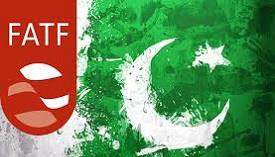
The Asia Pacific Group of the Financial Action Task Force (FATF) has put Pakistan in the Enhanced Expedited Follow Up List (Blacklist) for its failure to meet its standards. It found Pakistan was non-compliant on 32 of the 40 compliance parameters of terror financing and money laundering.
Pakistan ranked as low on 10 on 11 effectiveness parameters of terror financing and money laundering. The FATF APG meeting was held in Canberra, Australia.
19 - US approved possible 8 billion Dollar sale of F-16 fighter jets to Taiwan

The U.S. State Department approved a possible 8 billion Dollar sale of F-16 fighter jets to Taiwan, which includes 66 aircraft, 75 General Electric Co engines, as well as other systems. The sale is considered to be the largest single arms transaction between the two countries.
F-16 fighter jets will help Taiwan in improving Taiwan's ability to defend its sovereign airspace. The President of Taiwan is Tsai Ing-wen.
20 - 5th Meeting of India-Nepal Joint Commission held in Kathmandu
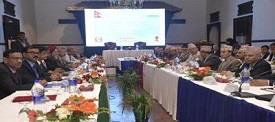
5th Meeting of India-Nepal Joint Commission was held in Kathmandu. The event was co-chaired by External Affairs Minister Dr. S. Jaishankar and his Nepalese counterpart Pradeep Kumar Gyawali. An MoU was signed between Food Safety and Standards Authority of India (FSSAI) and Nepals Department of Food Technology and Quality Control on food safety and standards.
India also handed over a cheque of 2.45 billion Nepali Rupees to Govt of Nepal towards reimbursement for housing reconstruction in Nuwakot and Gorkha districts.
21 - List of MoUs signed during visit of Prime Minister to France
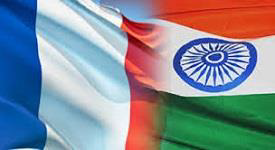
ADMINISTRATIVE ARRANGEMENT between the Ministry of Skill Development and Entrepreneurship, Government of the Republic of India and the Ministry of National Education and Youth, Government of the French Republic forCooperation in Skill Development and Vocational Training
MEMORANDUM OF AGREEMENT between National Institute of Solar Energy(NISE), Ministry of New and Renewable Energy, Government of India and The French Alternative Energies and Atomic Energy Commission (CEA)
COOPERATION AGREEMENT between Centre for Development of Advanced Computing (C-DAC), an autonomous scientific society of Ministry of Electronics and Information Technology and ATOS
IMPLEMENTING ARRANGEMENT between ISRO and CNES France for Joint Maritime Domain Awareness
22 - Russia launched floating nuclear reactor in Arctic

Russia launched the world's first floating nuclear reactor. The vessel, called the Akademik Lomonosov, is 144 metres long and 30 metres wide and houses two nuclear reactors with a capacity of 35 megawatts each.
The reactor will replace a coal-burning power plant and an ageing land-based nuclear plant and will supply 50,000 people in the area with electricity. The environmental group Greenpeace has called the plan "Chernobyl on Ice".
23 - Iran unveiled new missile defence system - Bavar-373
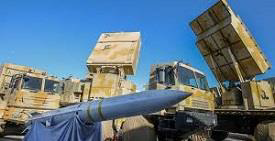
Iranian President Hassan Rouhani has inducted a locally built air-defence system, Bavar-373, into the country's missile defence network. The mobile surface-to-air system is "better than S-300 of Russia and close to S-400." It has a strike range of 200km.
Bavar 373 can simultaneously engage six targets with 12 missiles at a range of up to 250 kilometers. Bavar 373 can be used against strategic and tactical fighter jets and bombers, as well as against stealth planes, cruise missiles, ballistic missiles, and other targets.
24 - 45th G7 Summit held in Biarritz, France
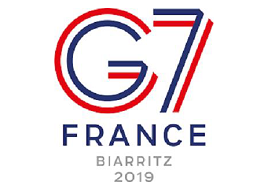
G7 Summit was held in the French town of Biarritz. The G7 group comprising Britain, Canada, France, Germany, Italy, Japan and the US agreed to support a medium-term reforestation plan, discussed global trade, Iran nuclear deal and climate change. G7 has agreed to spend 22 mn US$ to tackle the huge forest fires engulfing the world's biggest Amazon rain-forest.
At G7 Summit, Prime Minister Narendra highlighted India's efforts towards eliminating single-use plastic, conserving water and harnessing solar energy. The highlight of the summit was that newly invited countries will have to work for peace and boost world economy.
25 - Indian PM held bilateral talks with German Chancellor on sidelines of G7 Summit
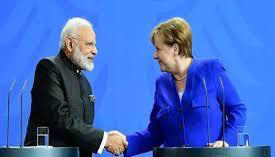
Prime Minister Narendra Modi met German Chancellor Angela Merkel, United States President Donald Trump and President of Senegal Macky Sall to discuss bilateral and a gamut of issues of mutual interest on the sidelines of the G-7 Summit at Biarritz, France.
President Donald Trump and Prime Minister Narendra Modi discussed trade deficit, cooperation as large democracies for the benefit of citizens, global peace and the Kashmir dispute.
26 - Sudan urged UNSC to withdraw all peacekeepers by June 2020

Sudan urged United Nations Security Council (UNSC) to lift its suspension of troop withdrawals and ensure all peace keepers leave Darfur by June 2020 to ensure peace building in Darfur and end restrictions on the government's movement of arms and troops in and out of the region.
However, the Security Council voted unanimously in June to put the brakes on the withdrawal of the joint UN-African Union peacekeeping force from Darfur as the country dealt with a political crisis.
27 - India won 19 medals at WorldSkills Kazan 2019
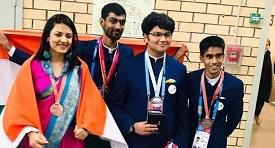
India won 19 medals and Medallions of Excellence at the WorldSkills International Competition 2019 in Kazan, Russia. The 48-member Indian team won one Gold, one Silver and two Bronze medals besides 15 Medallions of Excellence at the competition.
India finished 13th in the overall standings. Aswatha Narayana Sanagavarapu of Odisha won the Gold in Water Technology skill. Pranav Udayark Nutalapati of Karnataka won silver in Web Technologies while Shweta Ratanpura of Maharashtra won Bronze in Graphic Design Technology.
28 - French government moves bill to shrink country's parliament by 25%
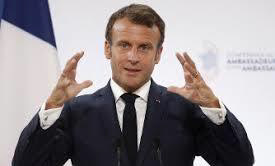
French President Emmanuel Macron's government has moved a bill to shrink the country's parliament by 25% as part of an overhaul of country's institutions. The government introduced a draft law that would reduce the number of seats in the lower house of parliament, the National Assembly, from 577 to 433.
The Senate would go from 348 to 261 members. The bill also allows for 20% of seats to be based on party lists instead of individual candidates.
29 - Attorney General Kharel-led Nepali delegation on 7-day observation visit to India
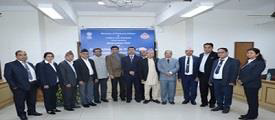
A twelve-member delegation led by Attorney General of Nepal, Agni Prasad Kharel, was on a seven-day observation visit to India. The delegation comprising senior attorneys from Federal Government and all Seven Provincial Governments visited the Supreme Court of India, Delhi High Court and attended a one-day workshop at Indian Law Institute in New Delhi.
The basic objective of the visit was to study the relationship between the Central and State judicial systems in India including the relationship between Attorney General of India and Advocates General of States.
30 - Britain's Queen Elizabeth approved British PM's plan to suspend parliament

Britain's Queen Elizabeth has approved Prime Minister Boris Johnson's plan to suspend parliament. The British Government had proposed the Queen to suspend Parliament just days after it returns from summer recess in the first week of September and only weeks before the Brexit deadline. The suspension of Parliament has shortened the span of time for Members of Parliament to block a no-deal Brexit before the current deadline.
Prime Minister Boris Johnson had vowed that Britain will leave the European Union on 31st of October, with or without a deal. Brexit is the withdrawal of the United Kingdom (UK) from the European Union (EU).
31 - Brazil banned setting Amazon fires to clear land for 60 days
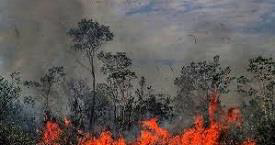
Brazil banned setting fires to clear land for 60 days in response to a massive increase in the number of fires in the Amazon rainforest. The decree was signed by President Jair Bolsonaro. The fires devastating parts of the Amazon rainforest have led to global scrutiny of Brazil's commitment to environmental conservation.
The UN Chief Antonio Guterres mooted a meeting of key countries to drum up support to tackle the fires that have also devastated swaths of Bolivia. Thousands of troops and firefighters have been deployed to combat the fires.
32 - India and Nepal organized training programme on EXIM Bank's guidelines
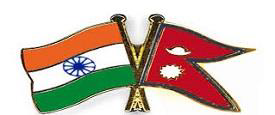
The Embassy of India in Nepal and National Reconstruction Authority of Nepal organized 2-day training programme in Kathmandu on the Export-Import Bank of Indias Line of Credit guidelines. EXIM Bank Senior experts of India conducted the training programme for Nepals 27 officials.
The training programme was organized as part of a bilateral understanding between India and Nepal during the 7th Line of Credit (LOC) Review Meeting held in June. The two sides also agreed to collaborate on future capacity building efforts of the Nepal officials who would be working on the Indias Line of Credit supported projects.
33 - Lionel Aingimea became the new President of Nauru
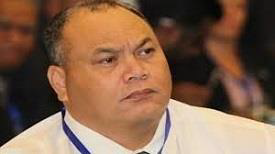
Former Nauruan lawyer and politician Lionel Rouwen Aingimea became fifteenth President of the pacific nation Nauru. He defeated David Adeang by 12-6 votes. He replaced President Baron Waqa. Lionel has worked for the Regional Rights Resource Team NGO and as a public defender in the Marshall Islands.
Nauru is an island country in Central Pacific with population of 12000 people, making it the world's third smallest country in terms of its population and third-smallest country in the world in terms of its size.